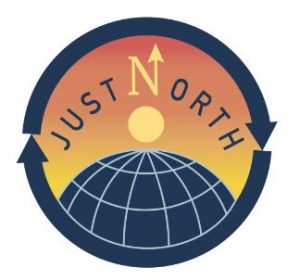Privatized fishery management schemes, alongside other cultural and social changes, have led to a high average age in some fisheries, where youth and newcomers are not meaningfully present in the industry. This research explored the current and future opportunities and constraints for youth and newcomers in Icelandic fisheries, which are managed by an Individual Transferable Quota system. Data were collected through participant observation and 25 semi-structured interviews with key individuals in fisheries.
Lebedef & Chambers
Privatized fishery management schemes, alongside other cultural and social changes, have led to a high average age in some fisheries, where youth and newcomers are not meaningfully present in the industry. This research explored the current and future opportunities and constraints for youth and newcomers in Icelandic fisheries, which are managed by an Individual Transferable Quota system. Data were collected through participant observation and 25 semi-structured interviews with key individuals in fisheries. Inductive qualitative analysis of interview data determined recurrent themes that illustrate how rural outmigration, cost, and changing social expectations have led to a decrease in youth and newcomers in Icelandic fisheries. Results show that the perception of fishers in Iceland by the general society fluctuates as the economic and cultural climate of the country changes. The ageing of the fleet in small-scale fisheries is explained by the limited access to consolidated fisheries rights, and the inability of youth to secure capital and invest in a fishery operation. Large-scale fisheries, on the other hand, have a different set of barriers for youth, such as lack of career advancement opportunities and a heavy workload. This research also documents how the absence of youth in small-scale fisheries is partially linked to a high turnover of youth in large-scale fisheries. Youth have more opportunities in large-scale fisheries, but over time, they do not receive adequate training or support to further an independent career, thereby creating a negative feedback loop leading to further reduction of recruitment in small-scale fisheries. Findings from the study support the continued call from academics and practitioners to include issues of access for newcomers in fishery management goals.
Read the full article:
https://link.springer.com/article/10.1007/s40152-023-00326-0
JUSTNORTH
JUSTNORTH is a project designed to explore the multitude of ethical systems that coexist in the Arctic, as a starting point to assess the viability of new economic activities in the region. For the millions of people who live both inside and outside the Arctic and are affected by these economic activities, decisions are made through utilitarian ethical principles: viability of an activity is based on profitability and technical feasibility, with little regard to questions of whether it is ethically right or wrong for the impacted human populations or the environment. Global climate change has launched intense speculation on Arctic resources. Increasing geopolitical tensions among some of the Arctic states increases the importance of respecting different value systems while finding common values to help strengthen the links between Arctic and non-Arctic entities. Significant practice and policy gaps in existing Arctic economic activities have led to development that is unsustainable.
Through understanding current practices of development in the Arctic through the lens of 18 case studies, JUSTNORTH aims to develop conceptual frameworks, indices and a negotiation tool, for reconciling multiple ethics and value systems. These will provide a cornerstone for determining the viability of economic activities in the Arctic, as well as clarify policy, legal, and regulatory pathways for implementing ethic-based decision-making principles.
Global climate change has launched intense speculation on Arctic resources. Increasing geopolitical tensions among some of the Arctic states increases the importance of respecting different value systems while finding common values to help strengthen the links between Arctic and non-Arctic entities. Significant practice and policy gaps in existing Arctic economic activities have led to development that is unsustainable.
Through understanding current practices of development in the Arctic through the lens of 18 case studies, JUSTNORTH aims to develop conceptual frameworks, indices and a negotiation tool, for reconciling multiple ethics and value systems. These will provide a cornerstone for determining the viability of economic activities in the Arctic, as well as clarify policy, legal, and regulatory pathways for implementing ethic-based decision-making principles.
Project details
- Project title: “Toward Just, Ethical and Sustainable Arctic Economies, Environments and Societies”
- Funding scheme: European Union Horizon 2020 Programme (EU H2020, Grant agreement ID: 869327)
- Duration: 3 years (1 June 2020 – 30 November 2023)
- Project coordinator: Uppsala Universitet, Dr. Corine Wood-Donnelly
- Project website: www.justnorth.eu/
